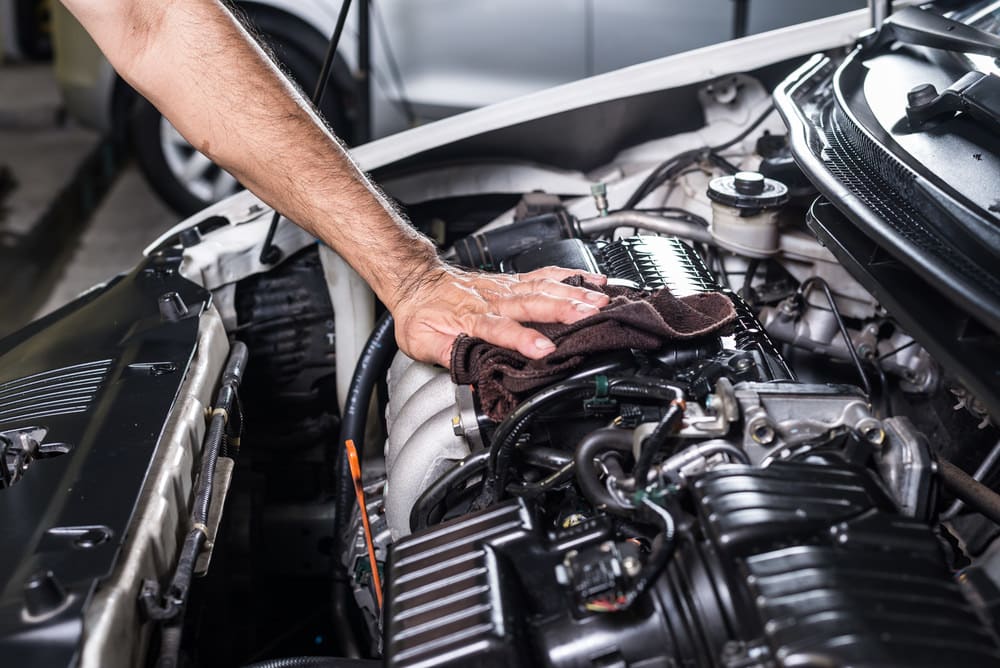

Whether you drive a brand new Smart car or a MACK truck from 1970, taking time to make sure your vehicle is as efficient as possible is important for drivability and the environment, too. According to the EPA, 27% of greenhouse gas emissions come from vehicles. It is important to reduce these numbers to ensure a healthy future for all of us. Reducing vehicle emissions makes your car more economical for both the environment and your wallet.
1. Get regular tune-ups:
Making sure your car is properly tuned will make it more efficient, and it will reduce emissions and save you money in the end. This inspection makes sure every part of your car is in great working order, and that all interdependent parts work in sync with each other and are functioning at its best. Having the oil changed regularly also contributes to a smooth running and greener engine. Do this every 5,000 miles and the mechanic might have better results for you after a tune-up. Tune-up inspections should be done every two years. Most tune-up procedures include checking and/or cleaning and/or replacing the following parts: * Spark plugs and wires * Fuel and air filters * Ignition system (battery, starter, distributor cap) * Emissions system (oxygen/fuel sensors, fuel pump, catalytic converter) * Engine timing * Onboard computer control system
A regular tune-up can greatly improve your car’s efficiency and gas mileage, even by as much as 40% if an oxygen sensor needs changing.
2. Have the tires checked:
Tire pressure checks should be done every month, and especially during weather changes. Flatter tires add rolling resistance, making car weight less bearable so the engine has to work harder. Optimal tire pressure is important for safe driving and good gas mileage. According to fueleconomy.gov, good tire pressure can improve your fuel economy by as much as 3.3%. Also, properly inflated tires are safer on the road and reduced wear means they last longer. Check your vehicle manual or car door sidewall for information about tire pressure.
3. Get the emissions system checked:
Your car’s emissions system keeps the engine running cleanly and efficiently in different driving conditions. A problem with your emissions system will typically trigger your check engine light on your dashboard. This must be diagnosed immediately to keep your gas mileage up and make sure your car is not polluting.
A system of sensors, hoses, vacuums, computerized controls, and exhaust components help significantly reduce harmful emissions from escaping into the atmosphere. These components work together to filter or breakdown carbon monoxide, unburned hydrocarbons, and oxides of nitrogen. By law, your car’s emissions system must be maintained to meet certain environmental pollution standards.
4. Have the fuel system checked:
Your vehicle’s fuel system works to make sure fuel is distributed in the most optimum way resulting in best performance and the lowest emissions. Have this checked regularly, or immediately if you smell gas. Change the fuel filter every two years and have the fuel injectors flushed every 30,000 miles. By having regular checks done to make sure your fuel system is in good working order, you will have a greener car that also save money at the pump.
5. Have the air filters checked regularly:
A dirty air filter restricts oxygen flow to the engine causing it to lose power. You can improve your car’s performance and acceleration with a clean air filter, but not miles per gallon. Invest in a reusable air filter, which reduces packaging waste, and will benefit you in the long term if you plan to keep your car for awhile. If not, replace your disposable air filter if it’s dirty, torn, or soaked with liquid.
6. Get the A/C system maintained:
Have the A/C system checked every year to test operation, pressures, and refrigerant charges to help maintain optimum temperatures. When you can, roll the windows down to keep the car cool instead.
7. Have the cooling system maintained:
The cooling system ensures your engine operates at optimum temperatures. A thermostat that allows the engine to run too cool reduces the vehicle’s fuel efficiency by as much as two miles per gallon. If the engine runs too hot can blow the radiator or the head gasket, which is a time consuming and costly fix.
8. Remove excessive weight:
The more strain there is on the engine, the more work the car has to do. If you have loads of junk in your car, your vehicle isn’t driving as efficiently and as green as it can. Removing all that extra weight from the trunk and back seats will make your car more comfortable, give you better gas mileage, help your car go greener.
9. Fill up right at the pump:
Make sure you stop filling up when the nozzle shuts off automatically. Topping off can release harmful gas vapors into the atmosphere and adds extra unnecessary fuel into the tank, which needs space so the gasoline can expand. Also, spilled fuel is flammable, it releases more toxic vapors into the atmosphere, and it can leak into groundwater. Also, reduce emissions and keep fuel in the tank by making sure the gas cap is on tight.
10. Always drive smart:
The way you drive has a lot to do with how well your car operates, especially considering fuel economy. Avoid sudden acceleration, braking, and other aggressive driving. When approaching a red light, slow down; sometimes you can avoid starting from a dead stop. Avoid excessive idling, and drive more efficiently by getting good directions and consolidating errands. Use your vehicle’s cruise control features when you can, to ensure a steady pace with less speeding up and slowing down.



